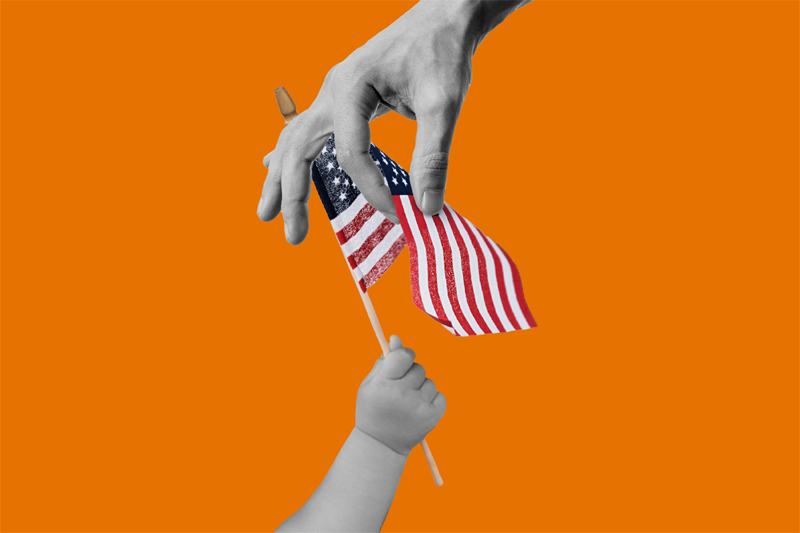By Sushil Kutty
President Donald Trump of the United States has made a series of bold “vows.” One of these promises involves relocating Gazans from the devastated Gaza Strip to a more desirable place. Another targets the controversial issue of ending birthright citizenship for children born in the U.S. to foreign workers. Trump’s image is extremely unpopular in Gaza and among the Indian immigrant community in San Jose, California.
Unsurprisingly, Trump is a significant source of frustration for millions of immigrants seeking American citizenship. His agenda is viewed as aggressive and troublesome.
Trump’s executive order to eliminate birthright citizenship was halted by two federal judges and faces widespread resistance. Nonetheless, in true Trump fashion, he insists this order will return, akin to Arnie in “Terminator.” Those on H-1B and O visas, particularly Indians in the U.S., are understandably anxious.
The anxiety is palpable, akin to carrying two pebbles under one’s arm. Indian immigrants Neha Satpute and Akshay Pise have taken to the media to express their outrage over Trump’s meddling in a matter that many believe he should avoid. Their personal deadline for addressing their situation is February 26, closely trailing Trump’s deadline for the ban on birthright citizenship set for February 20.
Both Satpute and Pise work as engineers on H-1B visas. The glaring question looms: Will their child be considered American? San Jose could indeed benefit from an increase in birthright citizenship for Indian expatriates. For many Indians on H-1B visas, hope is their only sustenance. Will Indian Prime Minister Narendra Modi attempt to clarify matters with President Trump?
Prime Minister Modi is embarking on a two-day visit to the U.S. Will he confront Trump about these controversial policies? Despite their friendship, many Indians harbor doubts about Modi’s willingness to speak candidly. The phrase “Modi hai toh Mumkin hai” has become an urban legend, devoid of real credibility.
External Affairs Minister S. Jaishankar should address this topic. If Modi fails to mention it, many Indians—who are the second-largest immigrant group in the U.S.—will feel as though their voices go unheard.
The backlog of Indian applicants awaiting U.S. citizenship has ballooned to 400,000, often resulting in years or even a lifetime of waiting for this essential approval. Trump’s approach is polarizing; he acknowledges Elon Musk’s H-1B visa status while simultaneously attacking birthright citizenship.
The connection between the two matters cannot be overlooked. GOP candidate Vivek Ramaswamy, despite being of Indian descent, is often treated as an outsider. This dynamic places Trump and Musk in a troubling position, where their actions mirror the sentiments of white supremacy, while Ramaswamy stands apart.
It begs the question: If President Trump, a descendant of immigrants, could secure U.S. citizenship, why should a child born to foreign parents in the U.S. be denied the same right? Will Modi muster the courage to bring this issue to Trump’s attention and seek a viable resolution?
Trump’s executive order regarding illegal immigration falls within the rights of the U.S. government. However, children born to legal residents should not face the stigma of being deprived of American citizenship. After all, this is what Trump implies to newborns. Indeed, he represents a significant challenge for many.
The potential for heartbreaking personal stories resulting from Trump’s policies is immense. A significant concern remains: what if a higher court were to overturn the decisions made by the two federal judges? Trump is known for his stubbornness, evidenced by his decision to rename an Alaskan mountain on January 20, the day he assumed office, despite Native American opposition.
Mount Denali, which translates to ‘Big One’ in the Native tongue, was, under Trump, reverted to ‘Mount McKinley,’ named after a former president who had no ties to Alaska. Despite President Obama restoring its original name, Trump reinstated the previous designation, disregarding a legacy that has existed for millennia. This raises questions about Trump’s stance and adherence to the principles of equality.
Do Prime Minister Modi and External Affairs Minister Jaishankar possess the fortitude to discuss the “looming uncertainty” faced by Indian immigrants in America? For instance, what would happen to Noorie Khan if she is denied birthright citizenship, even though she was born before Trump’s February 20 deadline? Perhaps when her sibling Adam Khan grows older, the dynamics will shift, allowing for a more favorable perspective on citizenship.
(IPA Service)


Leave a Reply